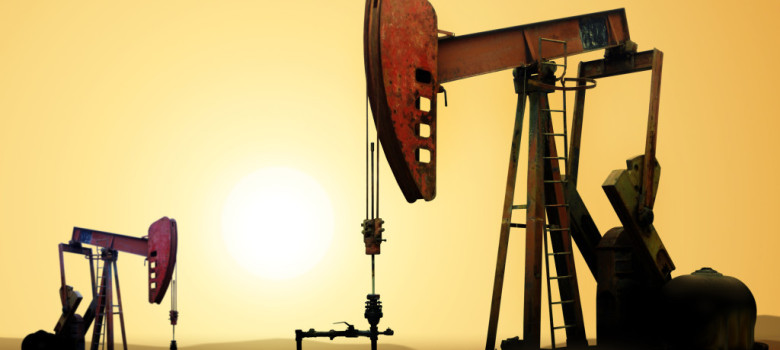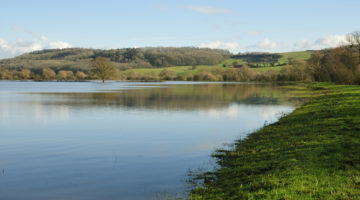
What is Shale gas and fracking?
Shale gas is natural gas found in shale rock formations underground. Due to the lack of permeability of the shale rock, the gas is trapped and cannot be extracted through a conventional well bore. Instead, the gas is extracted by pumping water, sand and other chemicals under high pressure into the shale layer, causing fractures in the rock allowing gas to escape.
It is a growing market with many countries in the world keen on exploiting their reserves of gas. Oil and gas from the middle east and Russia have dominated the market for some time, but the possibility of this gas being extracted in other countries has the potential to shake up the world energy market.
American shale gas
Currently, the American shale gas industry employs 600,000 people, and is worth around $10 billion. Shale gas accounts for around 20% of gas production in the US. It is the first place in the world to make fracking financially viable and has 1 million ‘fracks’ completed. Recently it was announced that the US will be exporting its shale gas to the UK, as the country has gone from a net importer to net exporter of gas. It has become a booming industry and gas companies are very excited about a number of new ventures in the country, particularly in the current fracking capital of the world – Texas.
British Shale gas
Britain is a long way behind the US in the shale gas industry, but the government thinks the fledgling industry could be a key means to help the economy recover from recession and create energy security for the UK. So much so that the Government has proposed slashing production taxes on gas by half.
Opposition in the UK has been fierce however, with demonstrations by activists at test sites and opposition from politicians and local communities. So much so that some companies have scaled back their operations already.
Environmental concerns for investing in Shale Gas
Shale gas is one of the most controversial energy sources going. Not only is it a means to perpetuate fossil fuels (shale gas produces at least the same, if not more carbon emissions than traditional natural gas), it also harbours other environmental concerns discussed below.
- The water and chemical mix pumped into the ground has to come out somewhere, and despite careful efforts to prevent groundwater pollution, there is always the possibility that contamination could occur, damaging water supplies in the local area.
- Fracking uses up vast quantities of water, which is mixed with chemicals to help extract the gas. In some parts of the US there have been concerns about water shortages as a result of the extraction.
- There are of course, emissions from the use of the natural gas produced, as there are with natural gas extracted from other means. The nature of the extraction technique means that it is likely further emissions occur as gas moves up towards the surface gas, as not 100% of the gas is collected.
- For those in the locality, fracking produces noise and disruption, with heavy equipment and tankers coming and going from the site. This is usually the primary objection for local residents.
- There have been some questions over seismic disturbances caused by fracking as well. Although it is hotly refuted by the gas companies there are concerns that the small earthquakes could detrimentally affect the local area.
So it is easy to see why there have been so many opponents and demonstrations. Whereas oil and gas drilling has traditionally been done in remote or sea locations, fracking in Britain is unfortunately likely to take place in areas of natural beauty or populated areas of the country. It is therefore understandable that there will be more opposition than has been seen in other environmentally damaging industries.
Perhaps the most damaging news for environmentalists though, is that it could lower the price of gas, and reduce the investment in renewable technologies, which have shown significant progress in the last decade. It is worrying that the Government is seriously considering such a big tax break for such a disruptive and backward thinking technology.












CO2 emissions dramatically down in the US. Why? More gas powered electricity generation replacing coal, which is now on its way out in the US.
European CO2 emissions up. Why? Burning more coal (some from from the US).
Also natural gas actually enables renewables – Texas is an interesting example – best way to provide back up.
In any case we will need gas for heat and industrial uses. We could also clean up city air with natural gas buses and trucks (batteries won’t work).
Renewables cannot yet replace gas for transport and industry.
Home tapped shale is far greener and better for the economy than LNG imported from Qatar.
Cheaper gas will mean fewer people in fuel poverty, fewer deaths annually.
Cheap gas is good for consumers, good for the elderly and good for the environment.
Energy and environment issues are complex – be careful what you wish for when you pray for pricier gas and beware of whose lives you are worsening and shortening.
Thanks for your reply Andrew,
I have to disagree with a few of your points however. Although fracking may reduce recorded CO2 emissions in the short term, Gas is not a long term solution to climate change and encouraging the fracking industry to the detriment of renewables will ultimately lead to increased emissions and more climate headaches.
Although natural gas creates less emissions on combustion compared to coal, there is very little research into the emssions created by escaped gas during the fracking process – some fear this makes fracking emissions greater than coal – but this is not reflected in the official figures that are used to give a total carbon emissions figure.
You also don’t mention the environmental impact of fracking, which will cause water shortage issues in already arid regions of the world, and has the potential to pollute ground water.